According to the all-Ukrainian nationally representative poll Omnibus, conducted by Info Sapiens on 10-14 April, 2022, if in March only 53% of those who worked/studied before the war, continued to work/study, there are 64% of those now.
The situation is worse in the private sector than in the public sector: 58% continue to work against 73% in the public sector.
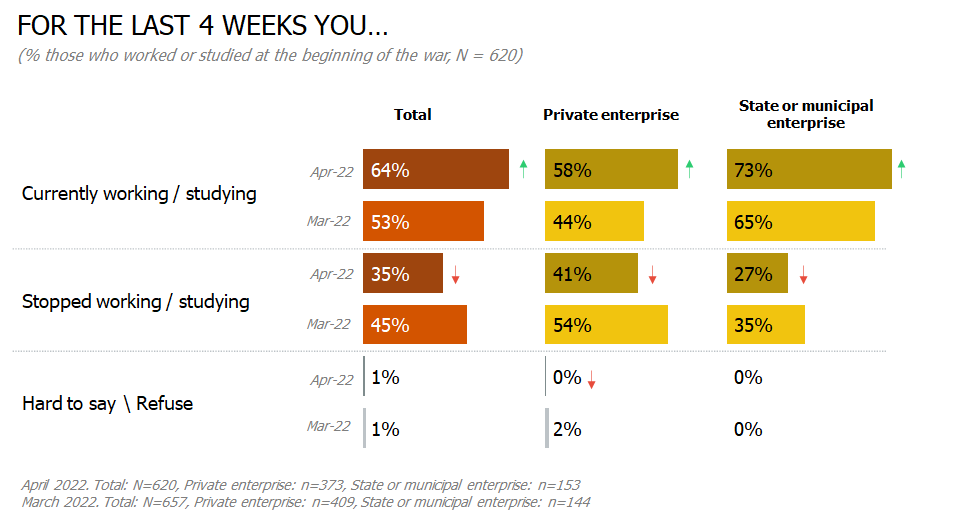
The efficiency of work/study is also increasing: if in March 15% said that they started working or studying better than before the war, now there are 20%. However, 41% still say they work or study less or worse.
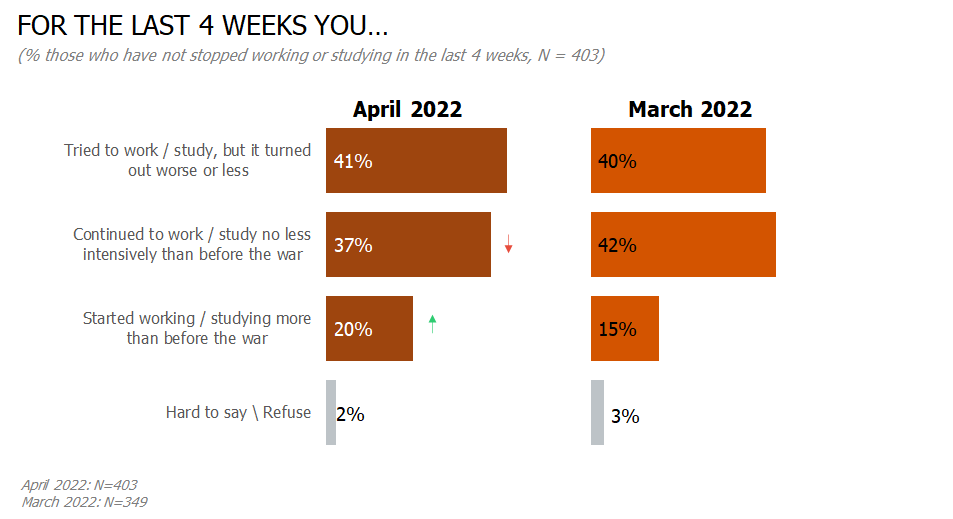
At the same time, despite this revival, the share of the unemployed in the Ukrainian labor force remains at the level of March – 26%[1].
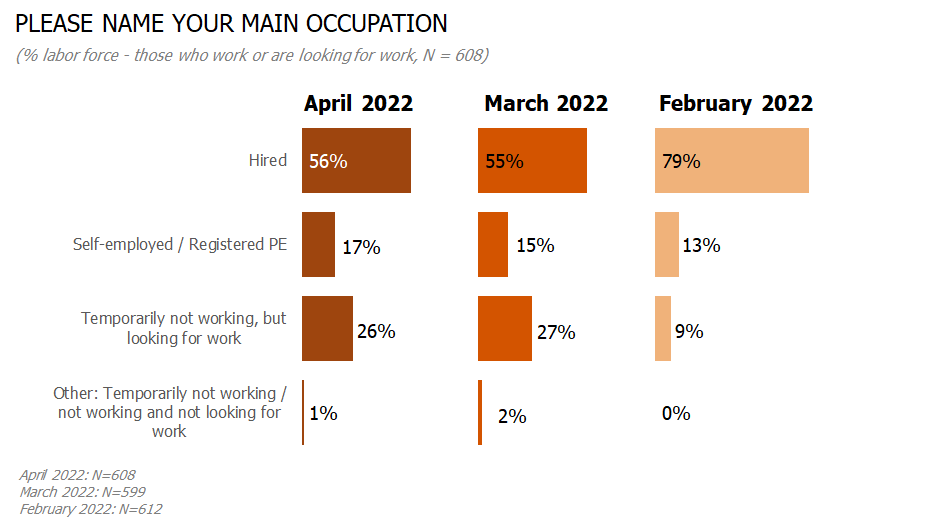
Only 34% of Ukrainians who worked at the beginning of the war received a full salary in April. Another 34% will be paid partially (in March there were 29%, in other words, the situation is still improving), and 25% will not receive it at all.
There are even more among private sector workers: 37% will be paid partially, and another 31% will not receive it at all.
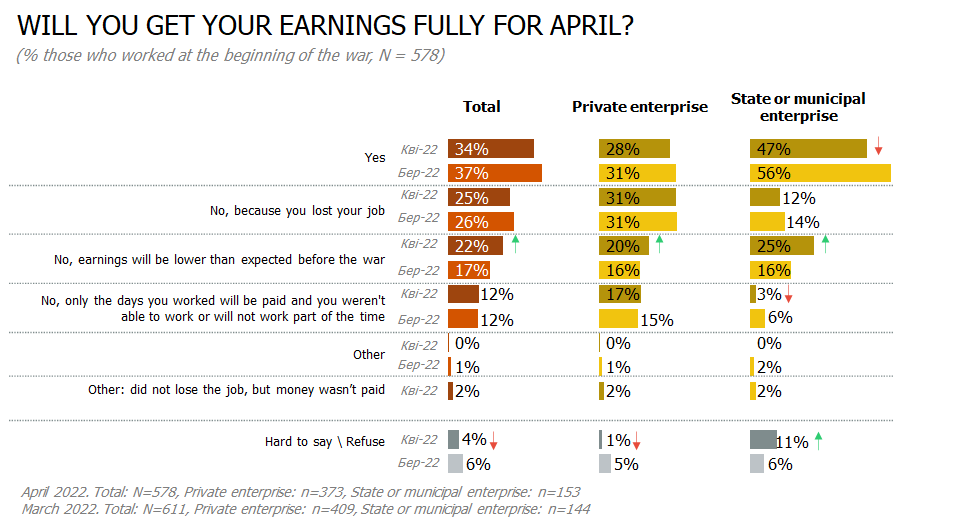
Most Ukrainians say that without a salary they will have enough income for 1-3 months: 19% - only for April (and in March there were 14%), 26% - for April and May, 22% - for 3 months.
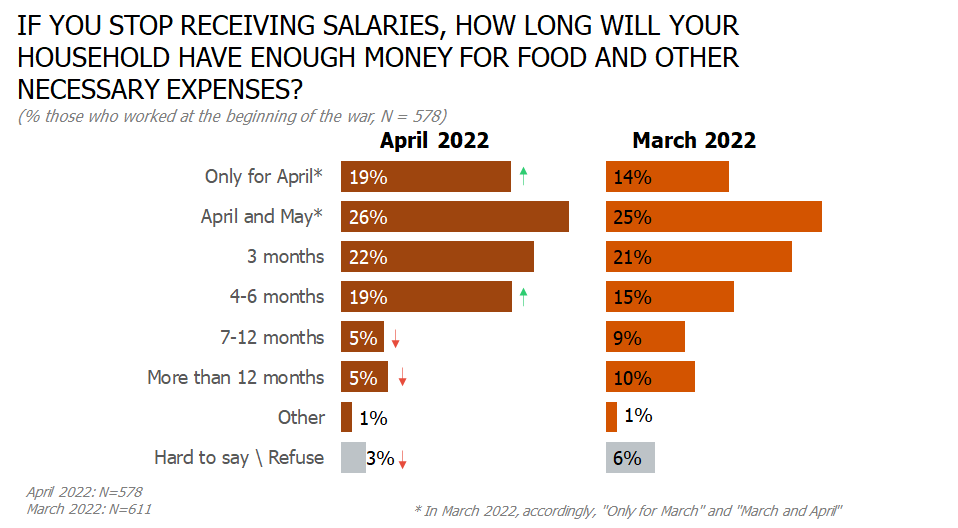
Along with the employment recovery, the psychological state has also improved: 50% consider themselves happy, while in March there were 46%. The share of the completely unhappy decreased from 15% to 10%.
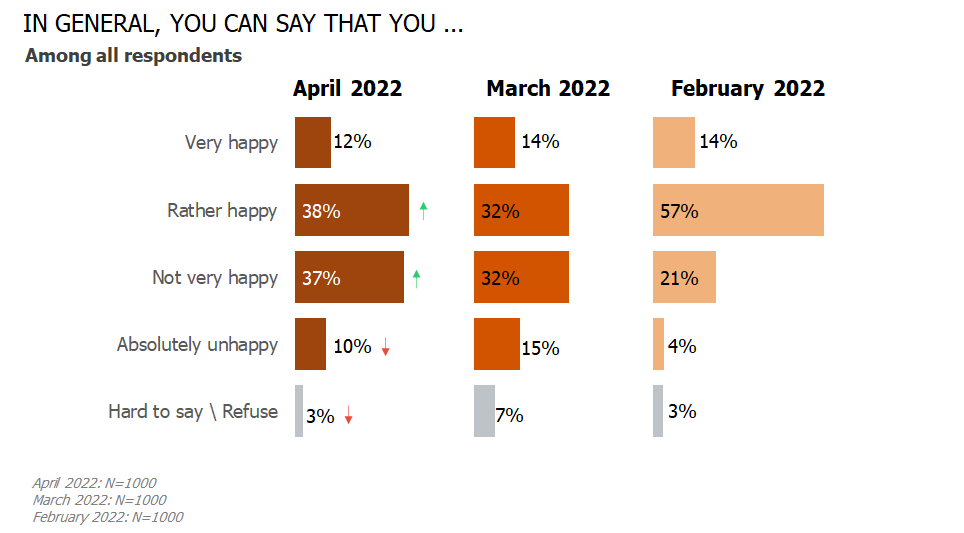
Research Information
The Omnibus sample consists of 1000 respondents. The survey was conducted by CATI (computer-assisted telephone interviews) based on a random sample of mobile phone numbers. The sample is representative of the population aged 16 years old and older by gender, age, size of settlement and region of residence. The Autonomous Republic of Crimea and the city of Sevastopol were removed from the study. In Donetsk and Luhansk oblasts, the survey was conducted only in the territories controlled by Ukraine. Also, the survey does not cover Ukrainians who have gone abroad, and residents of occupied settlements where there is no connection.
The maximum theoretical error does not exceed 3.1%. The survey was conducted on 10-14 April, 2022.
